Too Good To Go combines the convenience of online food ordering and the environmental consciousness of today’s public, connecting consumers with affordable food options that would otherwise go to waste.
Why It’s Newsworthy: Denmark is a leader in sustainability practices across many issues, and Danish people are used to making choices that make a positive impact. With a growing user base, Too Good To Go could become another way that the world follows Denmark’s lead.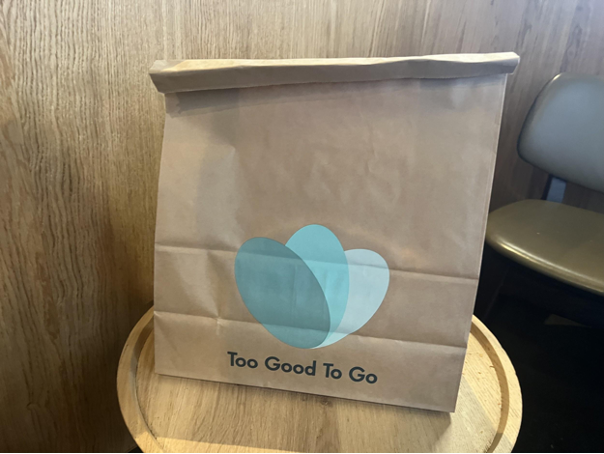
While in Copenhagen, the prevalence of sustainable options is everywhere, and the Too Good To Go app is thriving. In the city, most bakeries and convenience stores utilize its services to offer assortments of food to users. It’s a gamble because you won’t know what you’re getting until you pick it up.
Users simply open the app, select their location, and choose from a list of stores and times to pick up a surprise bag of food. The price for most bags is set at 39 Danish Krone, which is just above $5.
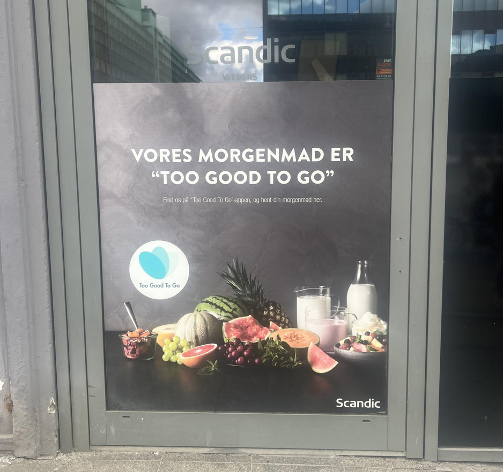
I heard about the app through a TikTok video several months ago, but was sad to find it not available in Athens, Georgia. In fact, the app’s availability in the U.S. is limited to major cities in California and along the upper East Coast. Luckily, the app is popular in Europe, and I was able to order through it several times during my stay.
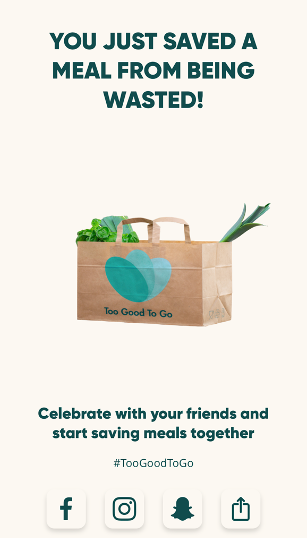
I ordered first from a convenience store, Q8, close to the dorms I stayed in during my trip. Though I was expecting to pick up a few bakery items, I came home with 12 full sandwiches and a bag full of dessert items.
On my next order, I tried a local bakery called Bodenhoff. Again, I received an enormous bag of scones, rolls, a loaf of bread, and an entire cake. I was overwhelmed by how much food it was, but the staff member said if I didn’t take it, they’d throw it out anyway.
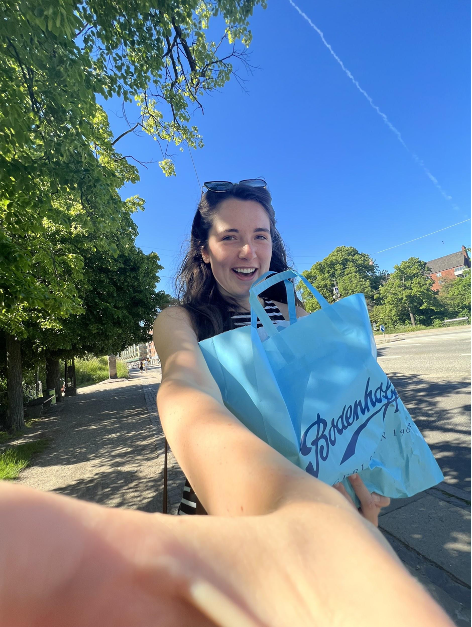
Upon discovering the utility of the app, I also met many people who had experience using it. One user, Marc Kobas Brinkman, is a Copenhagen local attending Copenhagen Business School. He has used the app many times for the good prices.
When discussing the reason he uses it, Brinkman said he wasn’t influenced by the goal of reducing food waste.
“I don’t really think about it a lot, but I guess it helps because they’re not throwing away food. Instead of them just throwing it away and me buying it from the grocery store,” Brinkman said.
Instead, he uses the app because of how inexpensive it is.
“I’ve gotten sushi a few times. I don’t want to pay the price for sushi, so I’d rather get the old one and take a chance,” he said.
Like many users, Brinkman values the price over choosing what exactly he receives.
Freja Vesterdahl began using the app when she lived on the island Bornholm in Denmark. The store she worked in used it for fresh goods. She loaded bags with the bakery items that weren’t sold otherwise, but said that there was no difference in goods.
“It was fresh; it was the same bread customers had just bought 15 minutes ago,” she said.
I reached out to the company to inquire about their impact, but was declined because of the limited availability of staff members and low resources. As a startup initiative, Too Good To Go is spread thin attempting to bring food pick-up access to new areas.
Upon utilizing the app and discussing it with other customers, it is apparent that Too Good To Go succeeds in connecting willing customers to food and reducing waste. Helping both consumers and individual stores, the app is a solution to a major problem in the world.
Hopefully the app will see an expansion in use in the U.S.; I’d love to try extra meals from Athens, Georgia favorites like Last Resort and Insomnia Cookies.
Lauren Heighton is a senior majoring in public relations in the Grady College of Journalism and Mass Communication at the University of Georgia.




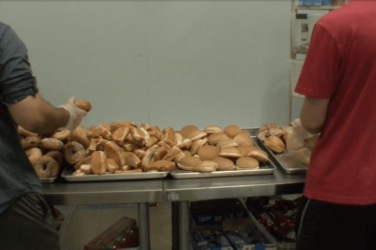
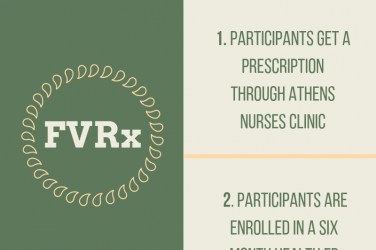


Show Comments (1)